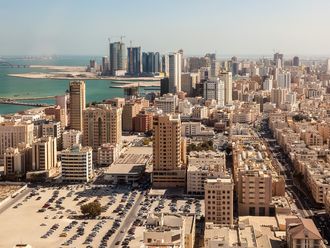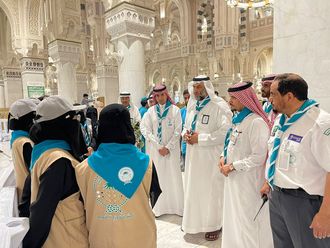Manama: Bahrain's Islamic Menbar, the society that enjoyed immense power in the parliament since 2002, has launched a damage-control operation to reverse its fortunes in the second round of the parliamentary elections on Saturday.
The society, an offshoot of the Muslim Brotherhood, was the third largest parliamentary bloc with seven lawmakers in the 40-seat, 2006-2010 lower chamber.
This year, it was so confident of winning that it did not think it was necessary to renew its 2006 alliance with Al Asala, the Salafi formation that had eight lawmakers in the previous parliament.
On Saturday, Al Menbar had its most dismal performance. It did not win a single seat, even in constituencies it often regarded as its bastions. It lost three candidates while five more candidates, including its chairman, will have to overcome stiff competition on Saturday in the run-offs.
"They had obviously fallen into dangerous self-complacency," said Ahmad Salman, who is described as a public relations specialist with close ties with the Islamic Menbar.
"They regretfully took everything for granted and thought that their names were enough to get them through the elections. They were absolutely wrong and should have learned not to tempt fate," said the resident of Muharraq where the society has its headquarters.
Taking out ads in some local papers on Monday, a humbled the Islamic Menbar urged people to give another chance to its 10andidates, five for the parliament and five for the municipal councils.
The society also hopes that it can secure the votes of the supporters of candidates who did not pass in the first round, but who will not move on to the crucial second round.
"They should now pray that it is not a case of too little, too late," Adel Marzou, an analyst, said. "They should have seen it coming after they failed to strike a deal with Al Asala, like they did before."
Residents in the bustling areas of Hoora and Qudhaibiya in Manama in 2002 supported the candidate from the Islamic Menbar, but switched to his opponent Adel Al Assoomi in 2006.
In 2010, they overwhelmingly supported Al Assoumi again in a clear indication that the Islamist society did not master the art of survival.












